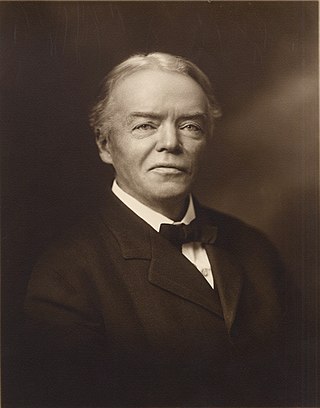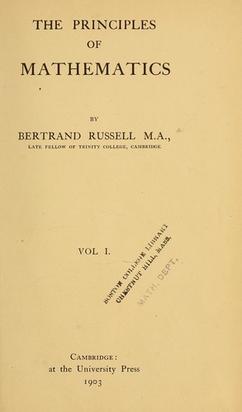Related Research Articles
In ontology, the theory of categories concerns itself with the categories of being: the highest genera or kinds of entities according to Amie Thomasson. To investigate the categories of being, or simply categories, is to determine the most fundamental and the broadest classes of entities. A distinction between such categories, in making the categories or applying them, is called an ontological distinction. Various systems of categories have been proposed, they often include categories for substances, properties, relations, states of affairs or events. A representative question within the theory of categories might articulate itself, for example, in a query like, "Are universals prior to particulars?"

Charles Sanders Peirce was an American scientist, mathematician, logician, and philosopher who is sometimes known as "the father of pragmatism". According to philosopher Paul Weiss, Peirce was "the most original and versatile of America's philosophers and America's greatest logician". Bertrand Russell wrote "he was one of the most original minds of the later nineteenth century and certainly the greatest American thinker ever".

The problem of universals is an ancient question from metaphysics that has inspired a range of philosophical topics and disputes: "Should the properties an object has in common with other objects, such as color and shape, be considered to exist beyond those objects? And if a property exists separately from objects, what is the nature of that existence?"
Truth or verity is the property of being in accord with fact or reality. In everyday language, truth is typically ascribed to things that aim to represent reality or otherwise correspond to it, such as beliefs, propositions, and declarative sentences.

Willard Van Orman Quine was an American philosopher and logician in the analytic tradition, recognized as "one of the most influential philosophers of the twentieth century". He served as the Edgar Pierce Chair of Philosophy at Harvard University from 1956 to 1978.
The philosophy of mathematics is the branch of philosophy that studies the assumptions, foundations, and implications of mathematics. It aims to understand the nature and methods of mathematics, and find out the place of mathematics in people's lives.

Abductive reasoning is a form of logical inference that was described by the philosopher and logician Charles Sanders Peirce in his 1903 lectures on Pragmatism.

Pragmatism is a philosophical tradition that views language and thought as tools for prediction, problem solving, and action, rather than describing, representing, or mirroring reality. Pragmatists contend that most philosophical topics—such as the nature of knowledge, language, concepts, meaning, belief, and science—are all best viewed in terms of their practical uses and successes.

"Pragmaticism" is a term used by Charles Sanders Peirce for his pragmatic philosophy starting in 1905, in order to distance himself and it from pragmatism, the original name, which had been used in a manner he did not approve of in the "literary journals". Peirce in 1905 announced his coinage "pragmaticism", saying that it was "ugly enough to be safe from kidnappers". Today, outside of philosophy, "pragmatism" is often taken to refer to a compromise of aims or principles, even a ruthless search for mercenary advantage. Peirce gave other or more specific reasons for the distinction in a surviving draft letter that year and in later writings. Peirce's pragmatism, that is, pragmaticism, differed in Peirce's view from other pragmatisms by its commitments to the spirit of strict logic, the immutability of truth, the reality of infinity, and the difference between (1) actively willing to control thought, to doubt, to weigh reasons, and (2) willing not to exert the will, willing to believe. In his view his pragmatism is, strictly speaking, not itself a whole philosophy, but instead a general method for the clarification of ideas. He first publicly formulated his pragmatism as an aspect of scientific logic along with principles of statistics and modes of inference in his "Illustrations of the Logic of Science" series of articles in 1877-8.
Clarence Irving Lewis, usually cited as C. I. Lewis, was an American academic philosopher. He is considered the progenitor of modern modal logic and the founder of conceptual pragmatism. First a noted logician, he later branched into epistemology, and during the last 20 years of his life, he wrote much on ethics. The New York Times memorialized him as "a leading authority on symbolic logic and on the philosophic concepts of knowledge and value." He was the first to coin the term "Qualia" as it is used today in philosophy, linguistics, and cognitive sciences.

Josiah Royce was an American Pragmatist and objective idealist philosopher and the founder of American idealism. His philosophical ideas included his joining of pragmatism and idealism, his philosophy of loyalty, and his defense of absolutism.
A pragmatic theory of truth is a theory of truth within the philosophies of pragmatism and pragmaticism. Pragmatic theories of truth were first posited by Charles Sanders Peirce, William James, and John Dewey. The common features of these theories are a reliance on the pragmatic maxim as a means of clarifying the meanings of difficult concepts such as truth; and an emphasis on the fact that belief, certainty, knowledge, or truth is the result of an inquiry.
Modern philosophy is philosophy developed in the modern era and associated with modernity. It is not a specific doctrine or school, although there are certain assumptions common to much of it, which helps to distinguish it from earlier philosophy.

An existential graph is a type of diagrammatic or visual notation for logical expressions, proposed by Charles Sanders Peirce, who wrote on graphical logic as early as 1882, and continued to develop the method until his death in 1914.

This Charles Sanders Peirce bibliography consolidates numerous references to the writings of Charles Sanders Peirce, including letters, manuscripts, publications, and Nachlass. For an extensive chronological list of Peirce's works, see the Chronologische Übersicht on the Schriften (Writings) page for Charles Sanders Peirce.

Charles Sanders Peirce began writing on semiotics, which he also called semeiotics, meaning the philosophical study of signs, in the 1860s, around the time that he devised his system of three categories. During the 20th century, the term "semiotics" was adopted to cover all tendencies of sign researches, including Ferdinand de Saussure's semiology, which began in linguistics as a completely separate tradition.

The philosopher Charles Sanders Peirce (1839–1914) did considerable work over a period of years on the classification of sciences. His classifications are of interest both as a map for navigating his philosophy and as an accomplished polymath's survey of research in his time. Peirce himself was well grounded and produced work in many research fields, including logic, mathematics, statistics, philosophy, spectroscopy, gravimetry, geodesy, chemistry, and experimental psychology.

The Principles of Mathematics (PoM) is a 1903 book by Bertrand Russell, in which the author presented his famous paradox and argued his thesis that mathematics and logic are identical.
Diagrammatology is the academic study of diagrams. It studies fundamental role played by the diagram in the communication and creation of knowledge. Diagrammatology is not only an interdisciplinary subject, but pan-historical and cross-cultural.
Irving H. Anellis was a historian of philosophy.
References
- 1 2 3 4 5 6 7 James Feibleman (1969) The Way of a Man, Horizon Press
- ↑ Robert E. Lane (2005) "FEIBLEMAN, James Kern (1904-87)", Dictionary of Modern American Philosophers , pages 753-7, John R. Shook editor, Thoemmes Press
- ↑ Telford Taylor, Constance Baker Motley, and James K. Feibleman (1975) Perspectives on Justice, Northwestern University Press ISBN 0-8101-0453-9
- ↑ Feibleman cited William S. Hatcher (1968) Foundations of Mathematics, W. B. Saunders